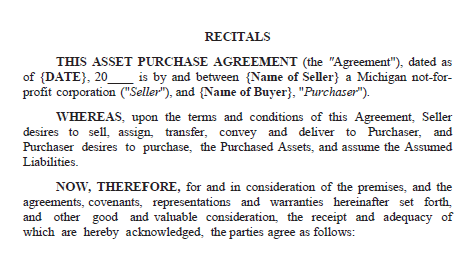Those who are selling or buying a home may underestimate the magnitude of the transaction. Sure, we all know there are a lot of big decisions to make, and it can be stressful and time-consuming. However, if you haven’t gone through it before, you may be unaware that there is a significant legal component to it as well.
When you buy a house and the property is transferred from one person to another, a legal contract known as a real estate purchase agreement is used to specify the terms of the sale. It can also be referred to as sales and purchase agreement.
What is a Purchase Agreement?
A purchase agreement in real estate is a legally binding contract between a buyer and seller that outlines the specifics of a home sale transaction. The buyer will propose contract terms, including their offer price, to which the seller will either agree, reject, or negotiate. Negotiations between buyer and seller may go back and forth until both parties are satisfied. When both parties reach an agreement and sign the purchase agreement, they are said to be “under contract.”
You may also have heard purchase agreements referred to as:
- Real estate sales agreement
- Purchase Agreement for a House
- Real estate purchase agreement
- Purchase agreement for a home

Who creates the real estate purchase agreement?
Typically, the buyer’s agent drafts the purchase agreement. However, unless they are legally licensed to practice law, real estate agents are generally unable to draft their own legal contracts. Instead, firms will frequently use standardized form contracts that allow agents to fill in the blanks with the specifics of the sale.
What is involved in a Real Estate Purchase Agreement?
Because every transaction is unique, no two real estate purchase agreements will be the same. However, there are some simple products that should be included in any purchasing agreement.
- Buyer and seller records
- Particulars of the property
- Pricing and funding
- Fixtures and appliances are included/excluded from the sale.
- Closing and possession dates
- Amount of the earnest money deposit
- Closing costs and who is responsible for them
- Conditions under which the contract may be terminated
- Contingencies or conditions that must be met in order for the sale to proceed
Understanding the Purchase Agreement’s components
While many parts of your contract are fairly straightforward, such as the price you’ll pay and the date of closing, other parts of the purchase agreement may be a little confusing, especially for first-time homebuyers. Before you sign the purchase agreement, make certain that you fully understand it.
#1. Financing
Your real estate purchase agreement will include information on how the home will be paid for. If the buyer isn’t paying cash, they’ll need some sort of financing (i.e. a loan) to purchase the home, the details of which will be spelled out in the contract.
For example, the contract will specify whether the buyer is obtaining a mortgage to purchase the property or if they are using an alternative, such as assuming the current mortgage on the property or using seller financing, in which the buyer makes payments to the seller rather than a traditional mortgage lender.
#2. Earnest Money Deposit
Earnest money, also known as a good faith deposit, indicates that a buyer is serious about purchasing a home. Sellers don’t want to waste their time; they want to know that a buyer will follow through on the contract until the end. The earnest money deposit gives them that assurance.
If between the time you sign the purchase agreement and close on the home, the buyer decides they want to back out for a reason not specified in the contract, they forfeit their earnest money and the seller keeps it. However, a buyer can get their earnest money back if they back out for a reason specified in the contract.
Earnest money is typically held in escrow by a third party and applied to the down payment or closing costs at the time of closing.
#3. Situations that may arise
There are numerous types of contingencies that can be included in real estate contracts on both the buyer’s and seller’s sides, and it is critical to understand any contingencies that are included in your purchase agreement.
Contingencies are conditions that must be met before the sale can take place. Here are some of the more common contingencies found in home selling contracts.
- Financing contingency:
The sale is dependent on the buyer’s ability to secure financing. If the buyer is unable to obtain a mortgage, this clause protects them.
- Inspection contingency:
The buyer has the right to cancel the sale without penalty if they are dissatisfied with the home’s inspection by a competent inspector.
- Appraisal contingency:
This states that the home must appraise for the same or more than what the buyer agreed to pay.
- Home sale contingency:
The home purchase is contingent on the buyer’s ability to sell their current home.
#4. Closing Costs
Finally, such fees and costs must be met. The amount that each party will pay is determined by what was agreed upon in the contract. Closing costs can include things like agent commission, appraisal and inspection fees, taxes, lender fees, and insurance.
Closing costs for buyers will range from 3% to 6% of the purchase price. Sellers’ closing costs could be marginally higher.
Other Factors To Consider In Purchase Agreements.
There are several factors to consider before sealing your purchase agreement. If at any point, these things are committed, they most often lead to misunderstanding. Some of this other things to consider include;
#1. Sellers Assists
The law permit the buyers’ to assists sellers in paying off some of the payment that comes with sale of a house. However, the term must be spelt out in a contract to be a bindi g agreement.
#2. Home Inspection
It is also advisable to get a home inspector to inspect the house before sechealng the deal. Ensure you make provision for this to avoid extra cost asd a result of fixing damages. Make provision for home inspection clearly spelled out in your contract.
#3. Terms of Agreements For Fixtures And Appliances
When a buyer offers to sell some or all of the fixtures as well as appliance with the home,ensure these are documented in the contract. A written contract cannot be easily denied.
#4. Seller’s Home
Examples of Sales Purchase Agreements in the Market
One of the most common SPAs occurs during real estate transactions. Both parties agree on a final sales price as part of the negotiation process. Other items relevant to the transaction, such as a closing date or contingencies, are also included.1
Large, publicly-traded corporations use SPAs in their supply chains. SPA may be used when obtaining a large number of materials from a supplier or when making a large-scale single purchase. For example, 1,000 widgets will all be delivered at the same time.
SPA can also serve as a contract for recurring purchases, such as a monthly delivery of 100 widgets purchased monthly over the course of a year. The purchase/selling price can be set in advance, even if the delivery date is set at a later date or spread out over time. SPAs are created to assist suppliers and purchasers in forecasting demand and costs, and their importance grows as the transaction size grows.
In another case, an SPA is frequently required during a transaction in which one business acquires another. Because the SPA specifies the exact nature of what is being bought and sold, the agreement may allow a business to sell its tangible assets to a buyer without selling the naming rights associated with the business.2
Can a Real Estate Purchase Agreement be Cancelled?
The best time to back out of a real estate purchase is before you sign the purchase agreement. After that, you’re under contract, and you may be penalized if you back out for reasons not specified in the purchase agreement.
Before signing a purchase agreement, make sure it includes information about the conditions under which the contract can be terminated.
How to End a Purchase Agreement
The purchase agreement cannot be canceled unless both the buyer and seller agree. The following factors cause the majority of purchase agreements to be canceled:
- Failure to Make a Deposit
- Defects in the Materials (found during building inspection)
- Cancellation during the Contingency Period
- Failure to Obtain Financing
- Consensus
If the buyer and seller agree to terminate, most real estate agents will require both to authorize a termination letter before releasing any escrowed funds.
What happens if one party breaches the terms of a Purchase Agreement?
If either the buyer or the seller breaches the terms of the Purchase Agreement, the non-breaching party may have legal recourse, such as the right to terminate the agreement or seek damages. It’s important to carefully review the terms of the agreement and ensure that both parties are fully committed to meeting their obligations.
What happens if the property is damaged before closing?
What happens if the property sustains damage before the closing date should be specified in the terms of the Purchase Agreement. Either the buyer or the seller may be able to back out of the deal if a certain condition is met, such as if the property sustains significant damage. In other cases, the parties may be obligated to complete the sale as planned and deal with any repairs after the fact in accordance with the terms of the agreement.
Can a Purchase Agreement be changed or modified after it is signed?
Once a Purchase Agreement has been signed, it can only be changed if both parties agree to the new terms in writing. Before making any changes to the agreement, it is crucial to read the terms thoroughly.
What happens if the property is found to have defects after a Purchase Agreement is signed?
The terms of the Purchase Agreement should address what happens if the property is found to have defects after the agreement is signed. In some cases, the agreement may include a contingency allowing either the buyer or the seller to back out of the deal if significant defects are discovered. In other cases, the agreement may require the parties to proceed with the sale and address any necessary repairs after the closing.
What is the difference between a binding and non-binding Purchase Agreement?
A binding Purchase Agreement is a legally binding contract that requires both the buyer and the seller to fulfill their obligations as outlined in the agreement. A non-binding Purchase Agreement, on the other hand, is not a legally binding contract and does not require the parties to fulfill their obligations. Non-binding Purchase Agreements are often used as preliminary agreements to outline the terms of a proposed sale.
How is the closing process handled in a Purchase Agreement?
Closing procedures are usually carried out in accordance with the terms specified in the Purchase Agreement. Closing details, such as time and place, and who will pay any fees or perform any other actions related to the transfer of ownership should all be spelled out in the contract. Depending on the agreement and local regulations, the closing process may be handled by a real estate agent, a closing attorney, or a title company.
In summary
Even if you are not a legal expert, you must understand the legal and contractual aspects of your home sale or purchase. Buying or selling a home is a big deal, and you can avoid headaches by making sure the deal you’re getting is a good one.
Purchase Agreements FAQs
Can I write my own purchase agreement?
You can write your own real estate purchase agreement without paying any money as long as you include certain specifics about your home. … Specify the purchase price of the home in your real estate purchase agreement. You can also list any down payment amount that will go into escrow.
What should be in a purchase agreement?
As discussed above, a purchase agreement should contain buyer and seller information, a legal description of the property, closing dates, earnest money deposit amounts, contingencies, and other important information for the sale
How do I make a purchase agreement?
Any purchase agreement should include at least the following information;
- The identity of the buyer and seller.
- A description of the property being purchased.
- The purchase price.
- The terms as to how and when payment is to be made.
- The terms as to how, when, and where the goods will be delivered to the purchaser.
Is a purchase agreement the same as an offer?
An offer to purchase is often called a purchase agreement, purchase contract, a sale agreement, or a purchase and sale agreement, depending on where you live and what type of property you’re buying. … The names of both the buyer making the offer and the home’s seller. The proposed purchase price of the home.







2 comments
Vielen Dank für den ausführlichen Bericht über den Kaufvertrag. Ich stehe kurz davor, ein Kaufvertrag erstellen zu lassen, bin aber noch relativ unerfahren. Ich werde mich definitiv noch genauer darüber informieren.
Okay, jetzt habe ich genug zum Immobilien-Kaufvertrag gelesen. Ich glaube, ich kann jetzt loslegen. Vielen Dank für die Informationen.